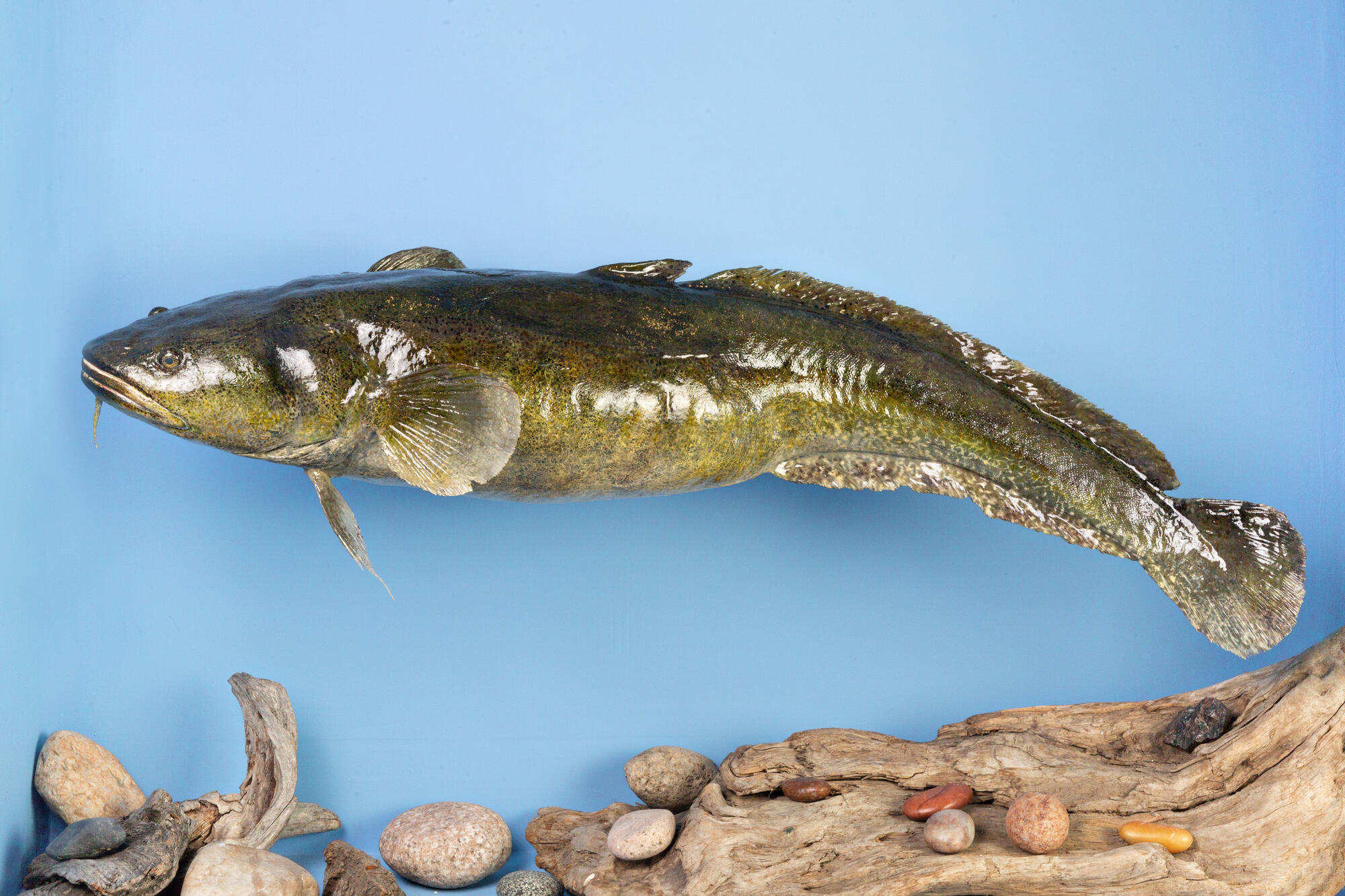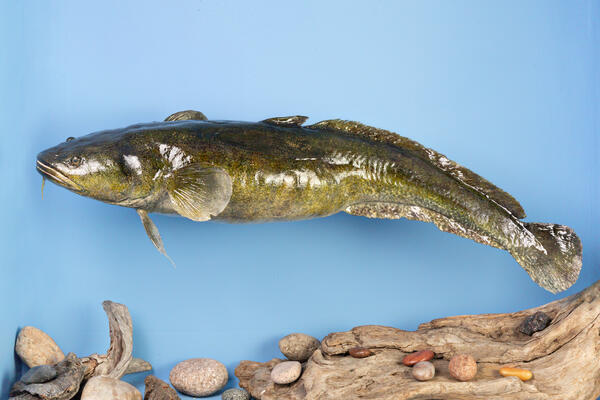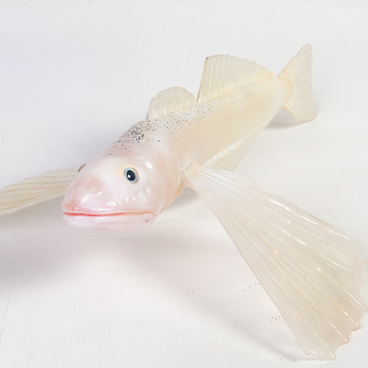Burbot is the only fish from the cod family that lives in Lake Baikal. It is widespread in all tributaries and in the lake itself mainly to a depth of 60 meters, but it is noted at a depth of 180 meters. The maximum weight of burbot is 6 kilograms with a length of up to 120 centimeters. Burbot has two dorsal fins and a small tendril on the chin. The head is flattened and the mouth is large with many small teeth. The color of burbot depends on the nature of the soil, the transparency and illumination of the water, as well as on the age of the fish, so it is quite diverse. Most often it is dark brown or blackish-gray. The entire body of the burbot is covered with a thick layer of mucus.
Burbot is more active at night than during the day. It is one of the most prolific fish in the lake. The female burbot lays up to 2.3 million eggs under the ice in winter. A thin layer of fat protects the eggs from the cold. However, few eggs turn into fish. A significant part of them is carried away by water and becomes prey for other fish. Burbot feeds mainly on fish, as well as copepod crustaceans, caddis flies, leeches, and other invertebrates. Burbot is one of the totem animals for the Buryats. According to legend, the Buryat tribe ekhirity originated from it. There are different versions of this legend recorded by Buryat scientists and ethnographers. According to one of them, a rich man and his wife lived near Lake Baikal in ancient times. He had many cattle and many sons. He was cruel, punished them, and made them work hard. One day he went to visit a neighboring district. And the sons decided to leave the cruel father, and took all the cattle and the yurt. The father has arrived, but his sons and household are gone. He and his wife wept and grieved for a long time, but there was nothing to do. They began to live in an old leaky yurt and eat what they had to. The old man realized that it was his own fault. Then he began to pray to the gods and ask forgiveness from the children for being so evil and cruel. And the gods heard him. One day their favorite gray bull came running to them. The old man and the old woman were very glad to see it. They welcomed it as their own son, and took care of it. This bull was sent by the most important Supreme God, Esege Malan. One day the bull went out to graze, and when it returned, it brought an iron cradle on its horns. Old people realized that this was the message of tengerini gods. They prayed to the gods and took the boy from the cradle. So the child sent by heaven stayed with them. They called him Bulagat. All the love that they did not give to their children they gave to Bulagat. The boy grew up and began to go to Lake Baikal and play there. One day he told the old people that he met a boy who lives in the water. The old men went to the sea and hid in the bushes. When the boy came out of the water, they caught him in a net, hugged him, kissed him, and brought him home. When asked where you came from, the boy replied: ‘My father is a mottled burbot, and my mother is a coastal gap.’ So the boy from the river stayed with them. They called him Ekhirit found in the coastal gap. He became a brother to Bulagat. They grew up, found brides, and got married. So the two brothers became the progenitors of two great Buryat tribes, namely: bulagaty and ekhirity.
Burbot is more active at night than during the day. It is one of the most prolific fish in the lake. The female burbot lays up to 2.3 million eggs under the ice in winter. A thin layer of fat protects the eggs from the cold. However, few eggs turn into fish. A significant part of them is carried away by water and becomes prey for other fish. Burbot feeds mainly on fish, as well as copepod crustaceans, caddis flies, leeches, and other invertebrates. Burbot is one of the totem animals for the Buryats. According to legend, the Buryat tribe ekhirity originated from it. There are different versions of this legend recorded by Buryat scientists and ethnographers. According to one of them, a rich man and his wife lived near Lake Baikal in ancient times. He had many cattle and many sons. He was cruel, punished them, and made them work hard. One day he went to visit a neighboring district. And the sons decided to leave the cruel father, and took all the cattle and the yurt. The father has arrived, but his sons and household are gone. He and his wife wept and grieved for a long time, but there was nothing to do. They began to live in an old leaky yurt and eat what they had to. The old man realized that it was his own fault. Then he began to pray to the gods and ask forgiveness from the children for being so evil and cruel. And the gods heard him. One day their favorite gray bull came running to them. The old man and the old woman were very glad to see it. They welcomed it as their own son, and took care of it. This bull was sent by the most important Supreme God, Esege Malan. One day the bull went out to graze, and when it returned, it brought an iron cradle on its horns. Old people realized that this was the message of tengerini gods. They prayed to the gods and took the boy from the cradle. So the child sent by heaven stayed with them. They called him Bulagat. All the love that they did not give to their children they gave to Bulagat. The boy grew up and began to go to Lake Baikal and play there. One day he told the old people that he met a boy who lives in the water. The old men went to the sea and hid in the bushes. When the boy came out of the water, they caught him in a net, hugged him, kissed him, and brought him home. When asked where you came from, the boy replied: ‘My father is a mottled burbot, and my mother is a coastal gap.’ So the boy from the river stayed with them. They called him Ekhirit found in the coastal gap. He became a brother to Bulagat. They grew up, found brides, and got married. So the two brothers became the progenitors of two great Buryat tribes, namely: bulagaty and ekhirity.


